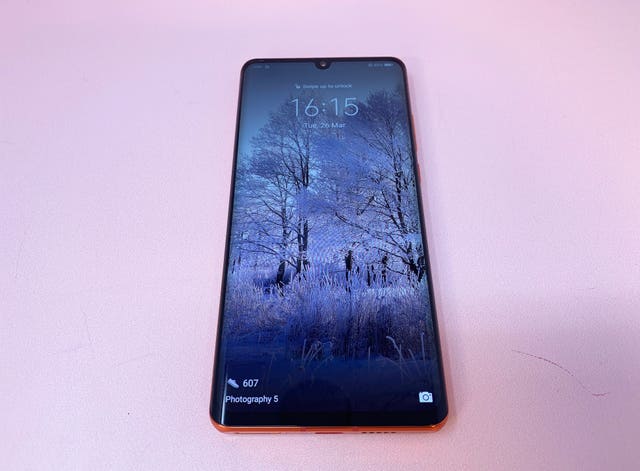Huawei founder says US controls on Chinese tech giant will have little impact
Ren Zhengfei’s response comes a day after Google said it would comply with US government restrictions aimed at punishing his firm.

The founder of Huawei has said US restrictions on sales to the Chinese tech giant will have little impact, and confirmed the company is talking with Google about the possible effect on its smartphone business.
Ren Zhengfei told Chinese reporters the firm has “supply back-ups” if it loses access to American chips and other technology under last week’s order issued by the Trump administration.
Washington has said Huawei poses a security threat, and imposed restrictions on technology sales to the company.

Mr Ren said the US controls “will have no impact within this company”, but conceded some low-end business might be affected.
He said Huawei and Google are discussing possible “emergency relief measures” for its smartphone business, which might lose access to some of the American company’s services.
Google said it would comply with the restrictions, which are aimed at punishing the Chinese tech giant.
Huawei could quickly lose its grip on the number two worldwide rank in mobile phone sales as a result of the move by the Trump administration.
The restrictions effectively bar US firms from selling components and software to Huawei, and up the ante in a trade war between Washington and Beijing that partly reflects a struggle for global economic and technological dominance.
The Commerce Department confirmed the grace period on Monday night.
Google said it would continue to support existing Huawei smartphones but future devices will not have its flagship apps and services, including maps, Gmail and search.
Only basic services would be available for future versions of the Android operating system on Huawei’s smartphones.

Huawei will likely use its own, stripped-down version of Android, whose basic code is provided free of charge by Google. But the California company said Huawei would not be authorised to use other Google software and services if the sanctions go forward as announced.
Google could seek exemptions, but would not comment on whether it planned to do so.
Gartner analyst Tuong Nguyen said 48% of Huawei’s phone shipments last year were outside of China and the company will need to scramble not to lose market share.
Samsung led global smartphone sales in the first quarter of this year with a 23.1% share. Huawei was second with 19%, followed by Apple at 11.7%, according to IDC.
Huawei’s smartphone sales in the US are tiny – and the Chinese company’s footprint in telecommunications networks is limited to smaller wireless and internet providers – so any impact on US consumers of a Google services cutoff would be slight.
Hardware suppliers led by Qualcomm, Broadcom and Intel would also be forced to halt shipments to Huawei under the Commerce Department rule, which requires all US technology sales to the company to obtain government approval unless exceptions are made.
In a report, the global risk assessment outfit Eurasia Group said that if the sanction process helps persuade European carriers to shun Huawei equipment, a full ban on purchases of US technology products and services could be avoided.

“For users of our services, Google Play and the security protections from Google Play Protect will continue to function on existing Huawei devices,” it added.
The US government says Chinese suppliers including Huawei and its smaller rival, ZTE, pose an espionage threat because they are beholden to China’s ruling Communist Party. But American officials have presented no evidence of any Huawei equipment serving as intentional conduits for espionage by Beijing.
Huawei, headquartered in the southern city of Shenzhen near Hong Kong, reported earlier that its worldwide sales rose 19.5% last year over 2017 to 721.2 billion yuan (£81.8 billion). Profit rose 25.1% to 59.3 billion yuan (£6.73 billion).
Huawei smartphone shipments rose 50% in the first three months of 2019 to 59.1 million, compared with a year earlier, while the global industry’s total fell 6.6%, according to IDC. Shipments from Samsung and Apple both declined.
Huawei defended itself on Monday as “one of Android’s key global partners”. The company said it helped to develop a system that “benefited both users and the industry.”
It added: “We will continue to build a safe and sustainable software ecosystem, in order to provide the best experience for all users globally.”
Chinese foreign ministry spokesman Lu Kang said China will “monitor the development of the situation” but gave no indication how Beijing might respond.
The US order requires government approval for all purchases of American microchips, software and other components globally by Huawei and 68 affiliated businesses. Huawei said that amounted to 11 billion dollars (£8.6 billion) in goods last year.
That could create some collateral damage for US companies.





